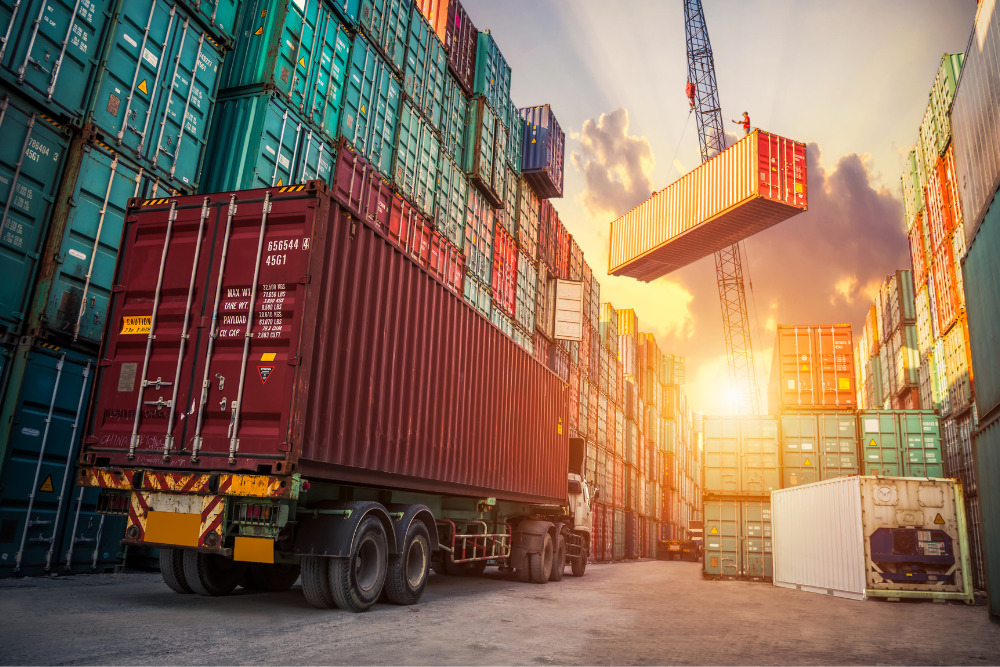Freight, logistics, digitalisation and data were discussed during the fourth and final ERTICO-ITS Europe webinar ahead of this year’s ITS European Congress at Lisbon Congress Centre, 22-24 May. There’s still time to join us: register here.
Recent trends in Transport & Logistics include electrification, paperless vehicle and load tracking, and the increasing use of data and analytics, as well as integrating port areas and cities, truck platooning, the greening of the sector, synchromodality as a route to decarbonisation, and a focus on last-mile deliveries. Markets and consumers have also changed, from expectations for impeccable green credentials to changes in retail and a massive increase in home delivery.
“Transport & Logistics is a critical focus area for ERTICO and its partners,” says Joost Vantomme, CEO, ERTICO-ITS Europe. “Everything involving this sector is about connecting the dots: the truck that drives to a port, its path smoothed by e-documents, transferring a cargo container to a ship, which sails to another port, freight is unloaded and travels onwards, perhaps via various distribution hubs, to its final destination. We work with partners, technologists, researchers, policymakers, and other stakeholders to deliver innovation in all aspects of that journey.” Freight and logistics are a core theme at the Congress, in key areas such as digitalisation, CCAM, decarbonisation, multimodality, and how we manage urban spaces.
“We’re seeing the radical transformation of the sector,” says Dr Nikolaos Tsampieris, Senior Manager, ERTICO-ITS Europe. Ultimately, he says, silos will be eliminated, and goods transported in seamless multimodal ways from point A to point B, based on robust digital solutions and services. “Freight and logistics of course benefit from the interconnected world we now live in, drawing innovations from other areas.” He points to enablers like 5G, Internet of Things, big data, AI, and cloud computing. “Data has become a critical asset, with the data value chain playing a pivotal role in future success.”
Improving connectivity and increasing interoperability are key to helping optimise cargo flows and enabling more agile supply chain management. To support such activities, ERTICO and its partners have been involved role in high-profile projects including FENIX (Europe’s first federated architecture for data sharing, designed for shippers, logistics service providers, mobility infrastructure providers, cities and authorities) and STORM (making freight transport greener, based on zero emission vehicles).
Mega-trends: digitalisation, decarbonisation and globalisation
When the Fraunhofer Institute for Systems and Innovation Research ISI carried out surveys and workshops in freight transport, part of the STORM project, digitalisation and decarbonisation (climate change) emerged as the two biggest issues facing the logistics industry. “In addition, two major events changed how people look at logistics and transport: the Covid pandemic, in particular the acceleration of home shopping and deliveries, and the war in Ukraine, which raises concerns around the security of transportation systems and questions around globalisation,” says Dr Jonathan Koehler, Research Scientist.
He says a number of important questions need to be answered around the future of logistics, not least to ensure greater resilience and continuing decarbonisation. “There are signs that customers are willing to pay more for decarbonisation. How can we accelerate the transition towards zero carbon logistics? How can we change behaviours? How can digital technologies be used to decarbonise logistics, extending beyond vehicles alone? How can policies steer the impacts of technological development to support digitalisation and decarbonisation, and how can they be assessed?”
Driven by data?
“Big data can clearly improve road freight transport and solve problems by enabling the discovery of patterns, trends and differences it’s not possible to reveal using traditional data,” says Dr Wasim Shoman, Researcher at Chalmers University of Technology, also involved in STORM. With freight systems already complex and evolving rapidly, accurate modelling, predictive capabilities, and analytics-driven decision making are required to increase understanding and inform new solutions. For example, to correctly allocate freight infrastructure for different charging technologies, big data analytics can provide detailed insights into new vehicles and emerging fleets, which have diverse requirements and limitations.
Building a European Mobility Data Space is a critical requirement: PrepDSpace4Mobility is the 12-month Coordination and Support Action funded by the European Commission to lay the foundations for pooling and sharing mobility data. “The logistics industry is characterised by a large number of local data islands, the use of the proprietary systems and standards, and lots of sensitive data being exchanged,” says Lucie Kirstein, EU Project Coordinator at the National Academy of Science and Engineering (acatech). She says secured data spaces will allow stakeholders to share data without surrendering sovereignty, working towards a federation of mobility and logistics data ecosystems while applying common principles and European values.
Exploiting 5G provides additional opportunities for innovation in ITS for freight. The 5GMETA project, coordinated by ERTICO partner Vicomtech, looks to expand 5G network functions for the deployment of CCAM applications. “5GMETA focuses on making infrastructure and vehicle data accessible to third parties, and acts as broker between data producers and data consumers,” says Dr Gorka Vélez Isasmendi, Senior Researcher, Vicomtech. With the 5GMETAPlatform becoming Open Source from February 2024, attendees at the European Congress in Lisbon can experience it during the 5GMETA Hackathon, with the winners receiving a total of 6,500 euros, and at Special Session 68.
E-documents ‘reduce administrative labour by up 75%’
Replacing physical documents and handling with electronic versions is yet another way to improve transport and logistics: a clear example of how digitalisation and automation can streamline and enhance the sector. “With initial adoption slow, we built a flexible data sharing platform that uses existing systems and platforms, providing a generic solution to digitally sign any kind of document, including eCMR, e-waste, POD, and so on,” says Barry van Leuven, General Manager of Pionira, part of the FENIX project. Innovations such as this reduce time and effort while improving productivity and efficiency across the logistics chain.
“Freight, logistics and digitalisation are highly important themes at the Congress, featuring in four plenaries, 25 special interest sessions, and around 40 technical presentations,” says Lisa Boch-Andersen, ERTICO’s Director of Communications, Congresses & Events. “These elements are part of a super-strong high-level programme and technical programme, which feature more than 500 speakers in total, together with the exhibition area, and demonstrations of ITS technology currently being deployed in Europe. We hope you can join us in Lisbon!”
Watch the webinar and panel discussion on-demand.
Register here for #ITSLisbon2023.
Visit www.itseuropeancongress.com for more information, and learn more about Lisbon here.
The post Delivering tomorrow’s freight and logistics: digitalisation and data appeared first on itseuropeancongress.com.

